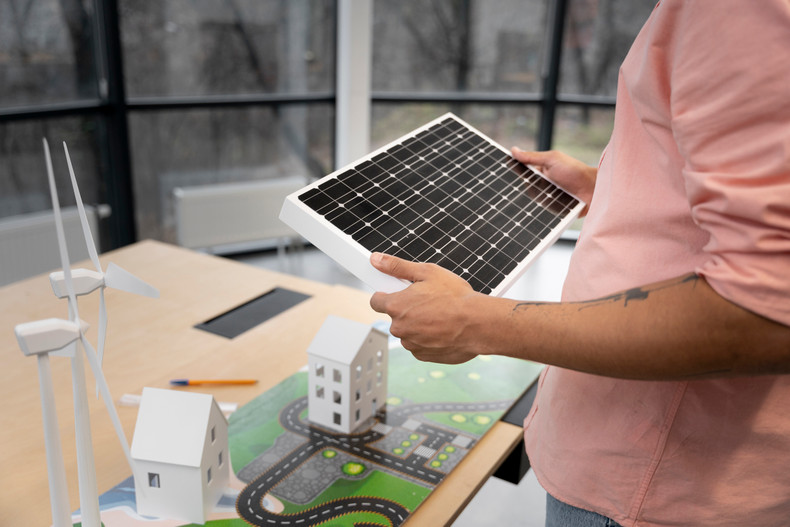As India continues to embrace renewable energy, solar power has emerged as a frontrunner in the quest for clean and sustainable electricity. The declining costs of solar panels, coupled with government incentives, have made solar energy an attractive option for homeowners and businesses alike. However, the initial investment can still be substantial. This article will explore various financing options available to Indian consumers looking to invest in solar panels, including loans, leases, and Power Purchase Agreements (PPAs).
Understanding the Cost of Solar Panels in India
Before delving into financing options, it's essential to understand the current costs associated with solar panel installations in India. As of 2024, the average cost of a residential solar system ranges from ₹40,000 to ₹60,000 per kW, depending on factors such as system size, quality of components, and location. For a typical 5kW system, homeowners can expect to invest between ₹2,00,000 and ₹3,00,000.
While these figures may seem daunting, it's important to consider the long-term savings on electricity bills and the potential return on investment. With proper financing, solar energy can become accessible to a broader range of consumers.
Solar Loans: Powering Your Home with Borrowed Sunshine
Solar loans have gained popularity in India as a means of financing solar panel installations. These loans are specifically designed to help consumers purchase solar systems without the need for a large upfront payment.
Types of Solar Loans:
- Home Improvement Loans: Many banks offer home improvement loans that can be used for solar installations. These loans typically have competitive interest rates and longer repayment terms.
- Solar-Specific Loans: Some financial institutions and Non-Banking Financial Companies (NBFCs) offer loans tailored explicitly for solar panel purchases. These loans often come with attractive features, such as lower interest rates and flexible repayment options.
- Government-Backed Loans: The Indian government, through various schemes, supports solar adoption by offering subsidized loans. For example, the Solar Rooftop Subsidy Scheme provides financial assistance to residential consumers installing rooftop solar systems.
Advantages of Solar Loans:
- Ownership: You own the solar system outright, allowing you to benefit from any available tax incentives and an increase in property value.
- Fixed Payments: Most solar loans come with fixed interest rates, making budgeting easier.
- Potential for Immediate Savings: If your loan payments are less than your current electricity bills, you can start saving money from day one.
Considerations:
- Credit Score: Your credit score will affect your ability to secure a loan and the interest rate offered.
- Long-Term Commitment: Solar loans typically have terms ranging from 5 to 15 years, so be prepared for a long-term financial commitment.
Solar Leases: Renting the Sun's Power
Solar leases offer an alternative for those who want to go solar without the responsibility of ownership. Under a solar lease agreement, a third-party company owns and maintains the solar system installed on your property, and you pay a fixed monthly fee to use the electricity generated.
How Solar Leases Work:
- Installation: The leasing company installs the solar system on your property at a low or no upfront cost.
- Fixed Payments: You pay a predetermined monthly amount to the leasing company, regardless of the amount of electricity generated.
- Maintenance: The leasing company is responsible for system maintenance and repairs.
Advantages of Solar Leases:
- Low Upfront Costs: Minimal or no initial investment is required.
- Predictable Payments: Fixed monthly payments make budgeting easier.
- Maintenance-Free: The leasing company handles all maintenance and repairs.
How PPAs Work:
- Installation: A solar developer installs and maintains the system on your property at no upfront cost.
- Energy Consumption: You consume the electricity generated by the solar panels.
- Billing: You pay the developer for the electricity you use at a rate typically lower than your utility's rate.
Advantages of PPAs:
- No Upfront Costs: Like leases, PPAs require little to no initial investment.
- Potential for Immediate Savings: If the PPA rate is lower than your current utility rate, you can start saving immediately.
- Performance Guarantee: Since you only pay for the electricity generated, the developer is incentivized to ensure optimal system performance.
Government Incentives and Subsidies
The Indian government offers various incentives to promote solar adoption:
- 1.Accelerated Depreciation: Businesses can claim accelerated depreciation of 40% on solar assets, reducing their tax liability.
- 2.Net Metering: Many states in India have implemented net metering policies, allowing solar system owners to sell excess electricity back to the grid.
- 3.Tax Benefits: Some states provide additional tax benefits for solar equipment, such as VAT exemptions and electricity duty exemptions.
As solar technology advances and costs decrease, financing options for Indian consumers become more accessible. Whether through loans, leases, or PPAs, there's a solar financing solution to fit various budgets and preferences. By carefully considering your options and leveraging available government incentives, you can make the switch to clean, renewable solar energy while managing your finances effectively.
When it comes to high-quality solar solutions and expert guidance, look no further than Shop.waaree by Waaree. Waaree, India's leading solar panel manufacturer and EPC service provider, offers a comprehensive range of solar products and services tailored to meet your specific needs. From state-of-the-art solar panels and inverters to professional installation and maintenance services, Waaree has you covered. Our team of experienced professionals can help you navigate the financing options discussed in this article and find the best solution for your budget and energy requirements. With Waaree's cutting-edge technology and commitment to customer satisfaction, you can trust that your solar investment is in excellent hands.

